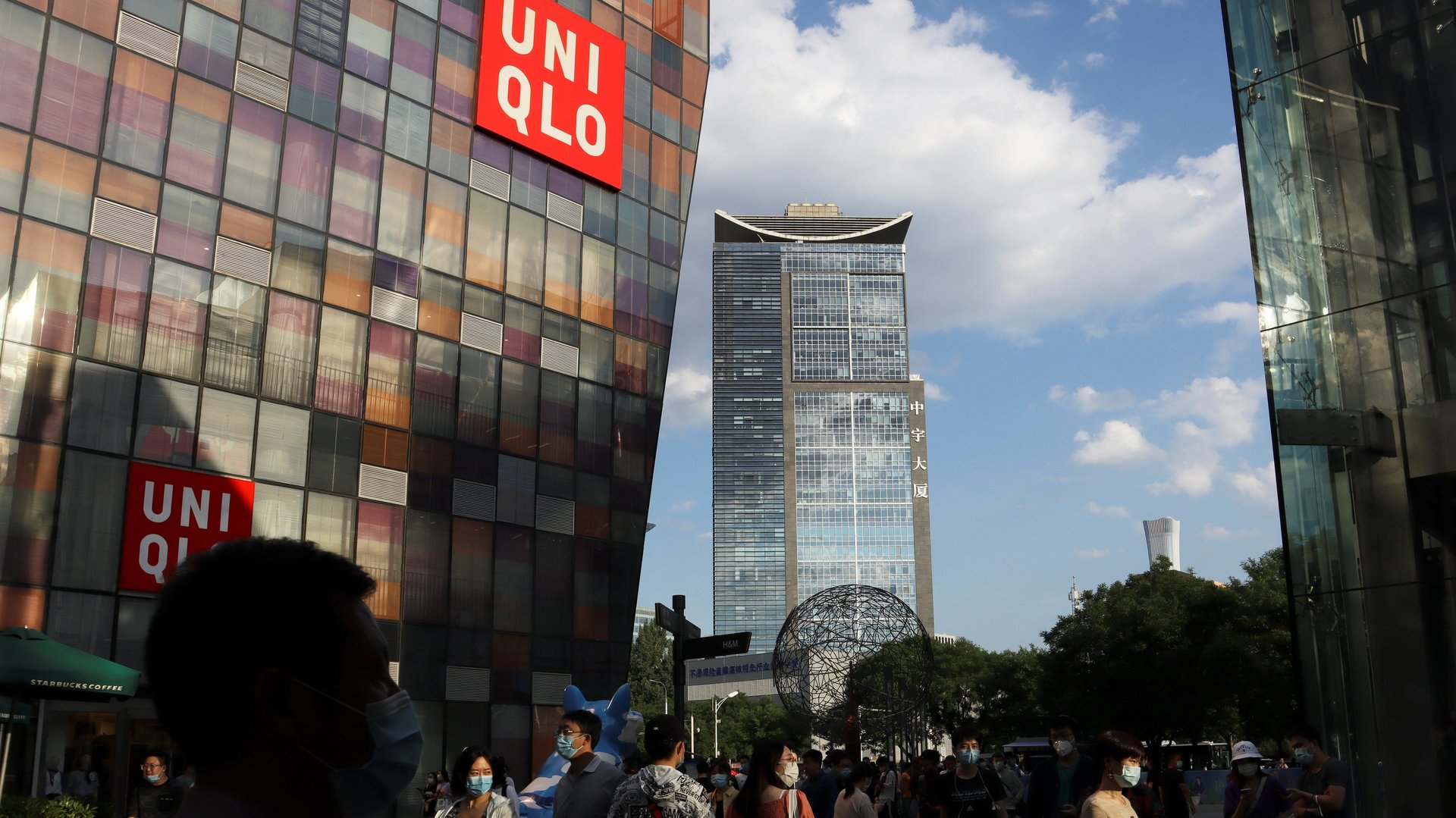How Uniqlo became the world’s most valuable clothing company
Fast Retailing, the Japanese clothing group that owns Uniqlo, toppled a giant last week.


Fast Retailing, the Japanese clothing group that owns Uniqlo, toppled a giant last week.
The company surpassed Spain’s Inditex, owner of Zara, to become the world’s most valuable clothing retailer, Nikkei reported. As of this writing, Fast Retailing’s market capitalization stands at $105.6 billion, edging out Inditex’s $98.2 billion. Other rivals, such as H&M, trail far behind. While there are companies with clothing businesses that are more valuable, such as Nike and French luxury group LVMH, their total sales rely heavily on categories other than clothes.
Fast Retailing’s ascension has as much to do with its future as its past. By sales, Zara and H&M are still bigger, but while their share prices have fluctuated through the global turmoil brought about by Covid-19, Fast Retailing’s stock has been on a steady rise since April. Uniqlo makes up the great majority of the company’s sales, and investors appear optimistic about where the brand is headed. Part of that confidence appears due to Asia’s growing spending power (paywall).
Though Uniqlo has had difficulty expanding in the US, it’s had no such issues in Asia, and China in particular. In 2018, Uniqlo’s sales outside Japan overtook sales in its home market for the first time. By August of 2020, the end of its most recent fiscal year, Uniqlo had 866 stores (pdf) across greater China, including Hong Kong and Taiwan, outnumbering its 813 stores in Japan.
Greater China now accounts for about 23% (pdf) of Uniqlo’s overall sales, and the company is simultaneously building its presence in other Asian markets, including around Southeast Asia. It has started making inroads in India as well.
🎧 For more intel on fashion brands, listen to the Quartz Obsession podcast episode on puffer jackets. Or subscribe via: Apple Podcasts | Spotify | Google | Stitcher.
This positioning has given it an advantage over some of its competitors in the pandemic. Already the world’s biggest fashion market, China is rebounding faster than Europe and the US, which bodes well for Uniqlo. Zara, by contrast, derived more than 60% of its sales from Europe in 2019 (pdf).
Uniqlo also sees a longer-term benefit. The company views China, Southeast Asia, and India as “the world’s economic growth centers,” as it described them in its 2019 annual report (pdf). The middle-income population in Asia, it added, is already large and set to get even larger.
In October, Tadashi Yanai, the company’s founder and CEO, remarked to analysts (pdf) that the world is “witnessing a shift from an era dominated by the United States and Europe to an Asian-centric era.” The pandemic will only accelerate the change if Asian economies continue to recover faster.
Uniqlo’s foothold in Asia isn’t its only strength. The company’s casual, functional clothes are likely to fare better in the coming months than, say, party dresses as workers around the world remain homebound, and its collaborations with designers such as Jil Sander remain popular.
Of course most of the shoppers buying these items are in countries such as Japan and China, and that’s probably what matters most to the investors keeping Uniqlo’s value rising.